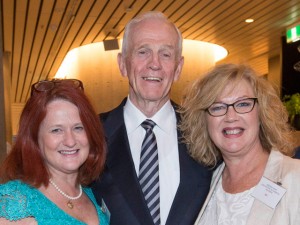Risk advisers regularly come up against client objections. But these do not need to cripple the sales process. In this article taken from the KnowledgeMaster Excellence Library, Jim Prigg offers techniques to overcome, circumvent, dismiss or ignore objections, which will ultimately improve the odds of converting the objection into an appointment or sale…
Handling objections and resistance is a natural part of the sales process. Just as you need to be able to find potential clients, get appointments, ask the right questions, explain concepts, close the deal, render ongoing service and retain clients to survive and thrive, so too do you need to be able to handle objections. If you can’t handle objections to your offers effectively you will be hard pressed to stay in business.
However, if you can develop the capabilities to answer, overcome, circumvent, dismiss or ignore objections or resistance you will be eminently better at what you do.
Handling client resistance and objections is not about being pig-headed, arrogant or a know-all. It is your opportunity to educate, correct, express a different point of view and genuinely help people through education, leadership and strength of belief in what you do to get them to make positive decisions.
Why do objections arise?
People have objections because they:
- Are not fully informed
- Have pre-conceptions
- Have misconceptions
- Use them as a ‘get out’ tactic to delay decisions
- Aren’t interested
- Don’t have the money
- Are afraid of making a decision
- Have not listened to your pitch properly
Objections can arise in response to product selection, personality types, transaction types, expectation of service levels, outdated ideas, new concepts, the price being asked and the need to make decisions quickly.
If you can’t handle objections to your offers effectively you will be hard pressed to stay in business.
Everyone in sales has objections raised against them, their product or service at some time. Accept the fact people will show resistance to your ideas and sometimes object to your proposition.
Just imagine if you could develop techniques to overcome, circumvent, dismiss or ignore (certain) objections. You will be eminently better off than if you do nothing to improve your odds of conversion to appointments and sales.
What a difference it would make, if you could get an extra 15-25% of people to make an appointment to see you, to listen to your offer or to accept your offer because you knew how to handle objections.
What are the fundamentals of handling objections?
- Be aware of what your prospects or clients are saying during your dialogue – tune in, don’t tune out
- Listen intently when an objection arises
- Pause to draw your thoughts together before you offer any answer
- Speak slowly and confidently when you do answer
- Thank people for raising the point
- Confirm the issue (objection) by repeating it back to the enquirer
- Ask permission to ask questions
- Offer a range of solutions
- Offer clarification
- Seek authority to continue
- Stick to your sales track
- Have a variety of ways to handle objections
- Know how to utilise the power of silence
- Don’t be aggressive, dismissive or act in a superior manner
What is the client really trying to say?
In every sales interview a sale is always made: either the prospect bought your offer or you bought their excuse or objection not to accept your offer.
Rather than being afraid of objections, try and understand the mood of what the prospect/client is trying to tell you, show you or ask you to do.
There must be an attempt by you to get the prospect to do one or more of the following:
- Crystallise in their mind what the real objection is
- Establish whether it is a deal breaker or a deal maker (if answered properly)
- Take away the doubt in their mind as to why they should see you or to initially talk with you
- Take away the doubt in their mind as to why they should accept your advice
- Differentiate between procrastination, an excuse and an objection
- Allow them to make a small decision in order to make a large decision and to move on in the sales process
- Determine whether they can afford your advice
- Be prepared to exchange money to solve the problem using your solutions
The fact objections arise gives you the opportunity to do the following:
- Ask questions about why the prospect/client objects
- Demonstrate the value of your service
- Offer testimonials
- Pass on the names of those who had a similar set of circumstances to whom you were able to provide a solution
- Look at different alternatives as solutions to the objection
Objections can open the way to increased dialogue, opportunities and refocusing on what the customer wants or is prepared to pay.
Tactical pointers on overcoming objections
Objections can stem from a lack of information; they just may be unanswered questions. Don’t let objections intimidate you. Almost everyone you meet will have questions and some will have objections to be dealt with in a variety of ways.
Hear them all the way out
The most important thing you can do is to listen. Let people finish their point. Sometimes that is all they want to do: just make a point. Don’t interrupt in the middle of a question assuming that you know the answer already.
Thank them for bringing the issue up
Welcoming the fact they have raised an issue can be an important psychological resource for you. A simple acknowledgement can help to defuse potential confrontation, just by saying something like: “Thanks for mentioning that point Mr Prospect. It is obviously of importance to you. I will give you some reasons why that fact is relevant, if that is OK with you?” Heightening your answer in a questioning form gives you permission to engage in dialogue on the issue.
Repeat the objection back to them
After your prospect has stated their question or objection, repeat it back so you are sure you understand it. This helps them clarify their thought processes: “So Mr Prospect, you are asking why our price is 15% higher than our competitors, is that right?”
Don’t bluff if you don’t know the answer
Of course, if you don’t know the answer, be honest enough to say so. Add the proviso that you will seek an answer and get back to them. Not knowing is not a sin. Pretending you do know is.
Question it
Get your prospect to talk about the objection as much as possible to determine if it is really a problem area or if they are looking for a reason not to be interested. Do you simply need to provide more information, or do you need to dig deeper to discover the real obstacle such as affordability, procrastination, health issues or partner ‘silent’ objections?
Answer it with a benefit attached
Answer the question/objection as simply, quickly, completely and accurately as possible. Understand how to attach a benefit such as: “Of course we have a medical up-front. The reason we provide this service is to ascertain if you can have the benefits we have explained at application time, rather than at claim time. Makes sense doesn’t it?”
Confirm the answer is OK and get their agreement to proceed
Once you feel you have answered the question, confirm that with them. Get them to acknowledge the objection/question has been resolved to their satisfaction.
Go to the commitment question
When the questions or objections have been cleared out of the way, get to the commitment questions for decision-making time:
- Do they believe you?
- Are they ready to become a customer?
- What else do they need to know to arrive at a positive decision?
Maybe this is a new experience for your contact. Any questions concerns or objections must be addressed and resolved before you can get a 100% commitment to act positively to your suggestions and offers.
Action plan
- Critique your sales presentation to see if there are places in it you unconsciously invite objections
- List the major objections you encounter
- Learn how to include positive questions in your presentations
- Develop a strategy for handling objections to your offers from the preceding content

This article is reprinted with permission from Jim Prigg and Knowledgemaster Pty Ltd. Knowledgemaster is an online resources company that delivers practical communications, interaction, sales and soft skills tips, tactics, techniques.
Jim Prigg is the CEO and founder of KnowledgeMaster. He says there is a raging indifference and ignorance to showing people in a practical sense the real face to face skills they need to sell insurance, which prompted him to create the KnowledgeMaster insurance series. It is not about compliance, technical or product knowledge, but the capability to inject emotion and empathy into the sales process. Rather than tell people what to do, KnowledgeMaster shows them “how to” do it. This means having access to practical scripts, interactive reports, successful communications ideas and just as importantly actions and activities at the end of each topic so we can help people to learn.
Contact or follow the author: Website | Email | Telephone: 03 5232 1500, 0408 520 453














